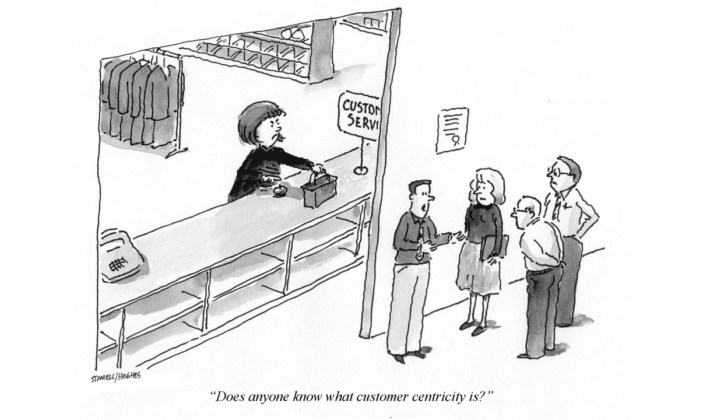The answers to 3 simple questions determine success

There is a lot that you would like to learn from your customers and there’s no shortage of data or ways to get it. But what you really need to know in order to succeed are the answers to the three questions above.
In the past, I’ve asked many CEOs , “Why do your customers buy your products?” They almost always have answers but they are almost always based on internal assumptions about their customers. I’ll follow that up with “How do you know?” and assumptions and anecdotes start to come out until they realize they don’t really know why their customers buy or don’t. We’ve managed dozens of research and strategy projects and have never once found that customer perceptions match internally based assumptions. It makes sense because most products and services are only a small part of what a customer thinks about during their day.

I recall a story from an agency account director for a large apparel company. The people at the agency believed their work was one of the most important things that their clients had to think about every day. Her apparel client counterpart went on maternity leave and asked her to take her position while she was out. The agency looked at this as a fantastic opportunity to lead the daily agenda for their client from within. However, once she got there, she found that agency matters were no more than 5% of her day. The reality of what the customer was thinking didn’t match internal assumptions and this is true regardless of whether we’re talking about consumers or professionals.

Knowing why your customers buy your products can give you the keys to their motivations, perceptions and sentiments that you can use to fortify their brand loyalty and create more effective presentations to people who don’t buy from you. Knowing what they buy is not enough. It doesn’t give you anything to work with except the data of past purchases and when they took place. Understanding why opens up a whole new landscape from which to communicate with them.
The next bit of information to know is how your customers talk about your brand. What language do they use? What level of importance do they give your brand? Do they recommend it to others? The Net Promoter Score (NPS) functionality on our platform enables appending both scores and language to individual customer files. So, when one of our clients was looking for prospective brand ambassadors, they saw that “love” was a common word among a number of customers and when they saw the full text of what customers wrote, they knew they found a gold mine of brand ambassadors. Language is more important than raw numbers. What means more? Knowing a customer rated your product a 9 or 10 or that they say they “love” it?

Now, consider that if you knew the various reasons why your customers buy from you and the language they use when discussing or rating your products, you’d have a whole new basis upon which to act in the future. Market research can give you a lot of these answers but, by itself, it cannot tell you which customer’s views align with different marketing messages. That can put you back in the position of applying your internal assumptions to the research findings.
It doesn’t have to be that way.
Market research that appends every response, whether to closed- or open-ended questions, to customer files can open up a new world of more effective segmentation and communication because then you can be assured of sending the right message to the right person. This is a benefit previously limited only to companies with massive marketing budgets due to the complexity of acquiring, storing and using that information.
Today, platforms like ours provide the right data that answers the right questions, at least the top three that will help you succeed.
Unlike any other marketing platform, Oomiji captures the “why” behind what customers do and it provides language that tells you how customers talk about your brand. Let’s set up a demo if you’d like to learn more.



